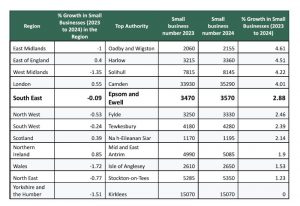A new cinema or bowling alley could “breathe new life” into Leatherhead as part of major regeneration plans aimed at “reversing the trend of brands leaving the town”. Plans for the high street, Swan Centre and Bull Hill will be put on display this week with people invited to have their say on the proposals that will be among the biggest changes to the town in years. Mole Valley District Council and Kier Property are working together on the project and have said they were “excited to share” the new layouts that feature “significant updates” based on feedback from 2024.
A spokesperson for the project said: “The proposals… aim to breathe new life into the Swan Centre and Leatherhead High Street. This will be through investment in upgrades to the look and feel of the centre. We are also proposing to open up the main entrance to provide specific units to bring exciting and quality chains and independent restaurants and operators to Leatherhead.” The new layout will also include what is being described as a ‘cultural building’ on the first floor ‘to potentially include a cinema, bowling, activity centre to provide a great new entertainment offering in the town centre.
They added: “This investment will be a catalyst to improve the quality and variety of offer in both the Swan Centre and Leatherhead High Street, reversing the trend of brands leaving the town and shop closures.” To take the development further, the council and Kier Property – working together as a joint venture called The Leret Partnership, is calling on residents to give their views on the updated proposals.
Among the updates and refinements are an increase in public green space and new building layout in Bull Hill with two drop-in sessions being held this week to give people the opportunity to take a closer look. Both sessions will take place in the former Clinton Cards site within the Swan Centre. The first will run from 2pm to 8pm on Thursday, March 13, with the second taking place on Saturday, March 15 from 10am to 4pm. They are also being hosted on the Leret Partnership’s website.
Image: Swan Centre Proposal from the Leret Partnership (MVDC)
Related reports:












